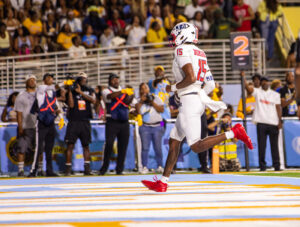Good morning, Chicago.
When the Chicago Tribune celebrated its 150th birthday in 1997, the paper boasted that “you can find the Tribune on city street corners, suburban doorsteps, on television, on your radio, and on computer screens.” It wouldn’t be long before another medium would be added to that list: the ever-present smartphone. But in the days of Mike and Eppie (you remember them as legendary Tribune columnists Mike Royko and Ann Landers), some things were still being done the old-fashioned way, writes Rick Kogan.
Aside from the Tribune’s sesquicentennial, there was a lot to celebrate in those years, especially on the city’s sports scene, as Paul Sullivan notes. (Also, did you know a Tribune editor created baseball’s All-Star Game? Ron Grossman has more on that here.) But there was also much tragedy, as many of you no doubt recall vividly, from the crash of Flight 191 to the terror of John Wayne Gacy.
Advertisement
As we near the end of our six-week celebration of the Chicago Tribune’s anniversary, those who still aren’t subscribers can take advantage of this special offer. And if you’d like to show off your allegiance to the paper that’s been documenting this city’s stories for 175 years, check out our anniversary merchandise (discount code CT175 will get you free shipping for a little longer). Feeling lucky? Enter to win a 175th anniversary tote filled with merchandise on Twitter or Facebook.
— Jocelyn Allison, Marianne Mather and Kori Rumore
Advertisement
More anniversary coverage | Vintage Voices | Pulitzer Prizes | Famous front pages | Vintage Tribune newsletter | 175th merchandise
As it approached the new millennium, Chicago, like the rest of the world, was on the brink of vast technological changes. But at the Tribune, two columnists known to colleagues simply as Mike and Eppie were still capturing the voice of the city like they had for decades. Eppie Lederer, better known to readers as Ann Landers, still used an electric typewriter, writes Rick Kogan. “Call me old-fashioned,” she said.

Chicago was known as the “city of losers” in 1976. Not by outsiders but by ourselves, writes Paul Sullivan. In the year of the nation’s bicentennial, the last local team to win a championship was the 1963 Bears. But the next 25 years would bring massive changes, including the arrival of Michael Jordan, who would go on to become the greatest basketball player of all time.

In 1979, a political novice named Jane Byrne became mayor of Chicago. She beat out Mayor Michael Bilandic, who famously blamed his loss on his administration’s fumbling of a January blizzard that had dumped more than 30 inches of snow over a couple of weeks.
Advertisement
In the spring of 1981, with Chicago’s most notorious public housing project reeling from 10 murders in three months, Byrne announced her intent to move into an apartment in Cabrini-Green in what some deemed a political stunt. But did she really move in?

Chicago’s Council Wars erupted May 2, 1983, when 29 aldermen realized the power of a favorite scenario of political science professors: the pitting of a weak mayor against a strong City Council. The political stalemate that resulted from the opposition of the so-called Vrdolyak 29 lasted until 1986, when a federal judge ordered that the city’s ward map be redrawn to better reflect the city’s racial demographics.

John Wayne Gacy’s confession to the rape and murder of more than 30 people didn’t just awaken America to a nightmare hidden in its own backyard. The 1978 discovery of the dank, muddy mass grave underneath Gacy’s yellow brick ranch house near O’Hare International Airport forever shattered the image of the safe suburban community.

In the summer of 1995, Chicago was gripped by a scorching heat wave that claimed more than 700 victims, mostly the poor, elderly and others on society’s margins. That one sweltering week would change the way Chicago prepares for all emergencies, shaping the city’s public safety strategy for any mass event, from the Air & Water Show to the Blackhawks Stanley Cup victory parade.

On the Friday before Memorial Day in 1979, a three-engine McDonnell Douglas DC-10 plummeted into an open field and mobile home park near O’Hare 31 seconds after takeoff, killing 273 people. More than 40 years later, the crash of American Airlines Flight 191 remains the deadliest passenger airline accident on U.S. soil. Its legacy helped spur reforms that contributed to a vast improvement in commercial aviation safety.

When the leader of the Roman Catholic Church visited Chicago in October 1979, the city was home to the second largest Polish community in the world, surpassed only by Warsaw. Having one of their own as pope provided Poles an alternative tie to their homeland during the Cold War.
Advertisement
A “sea of 200,000 faces” greeted Pope John Paul II at Five Holy Martyrs Catholic Church in Brighton Park, where he quipped that since he had been elected pope the prior October, “the number of Poles in the United States has increased.”







